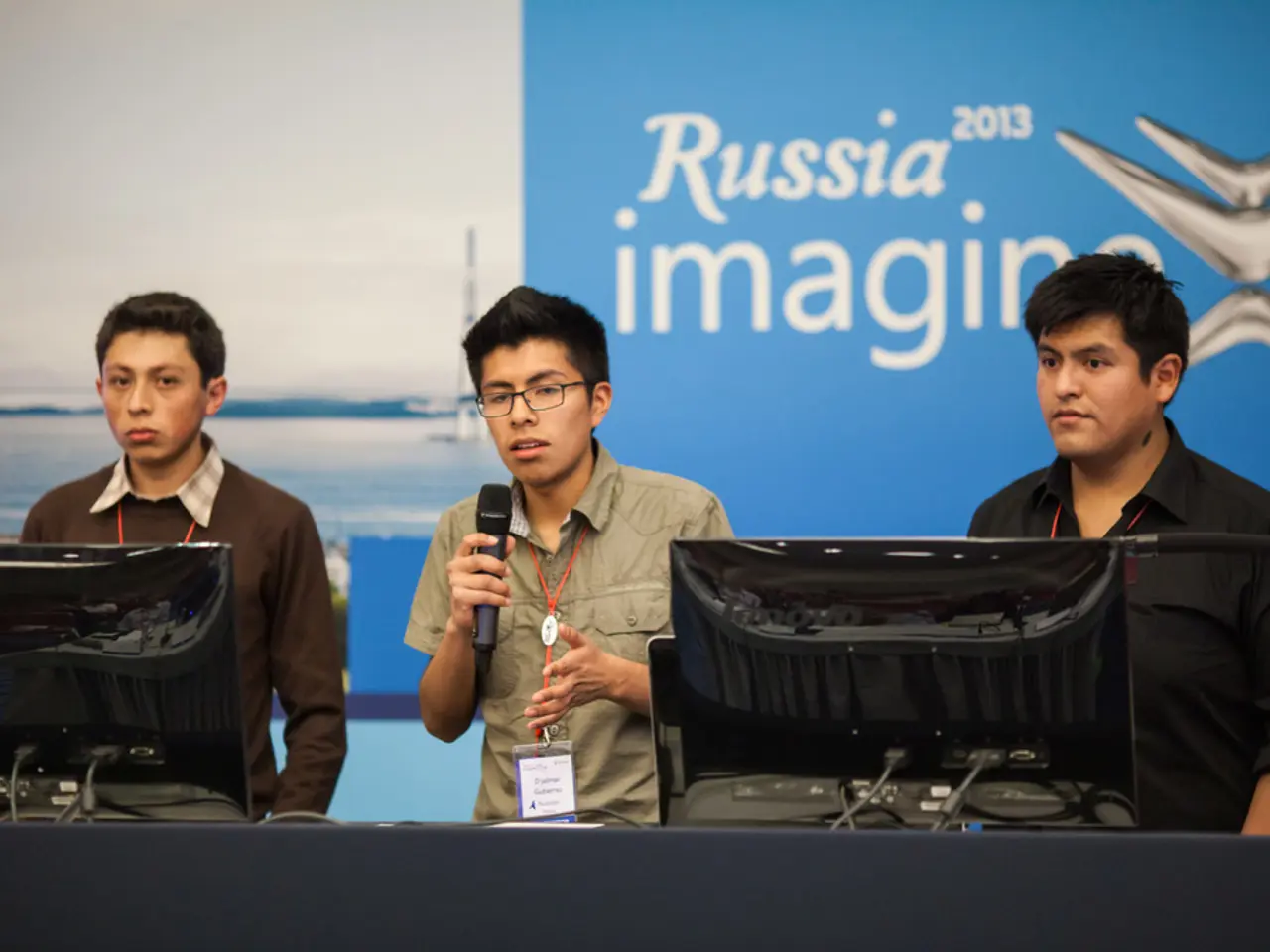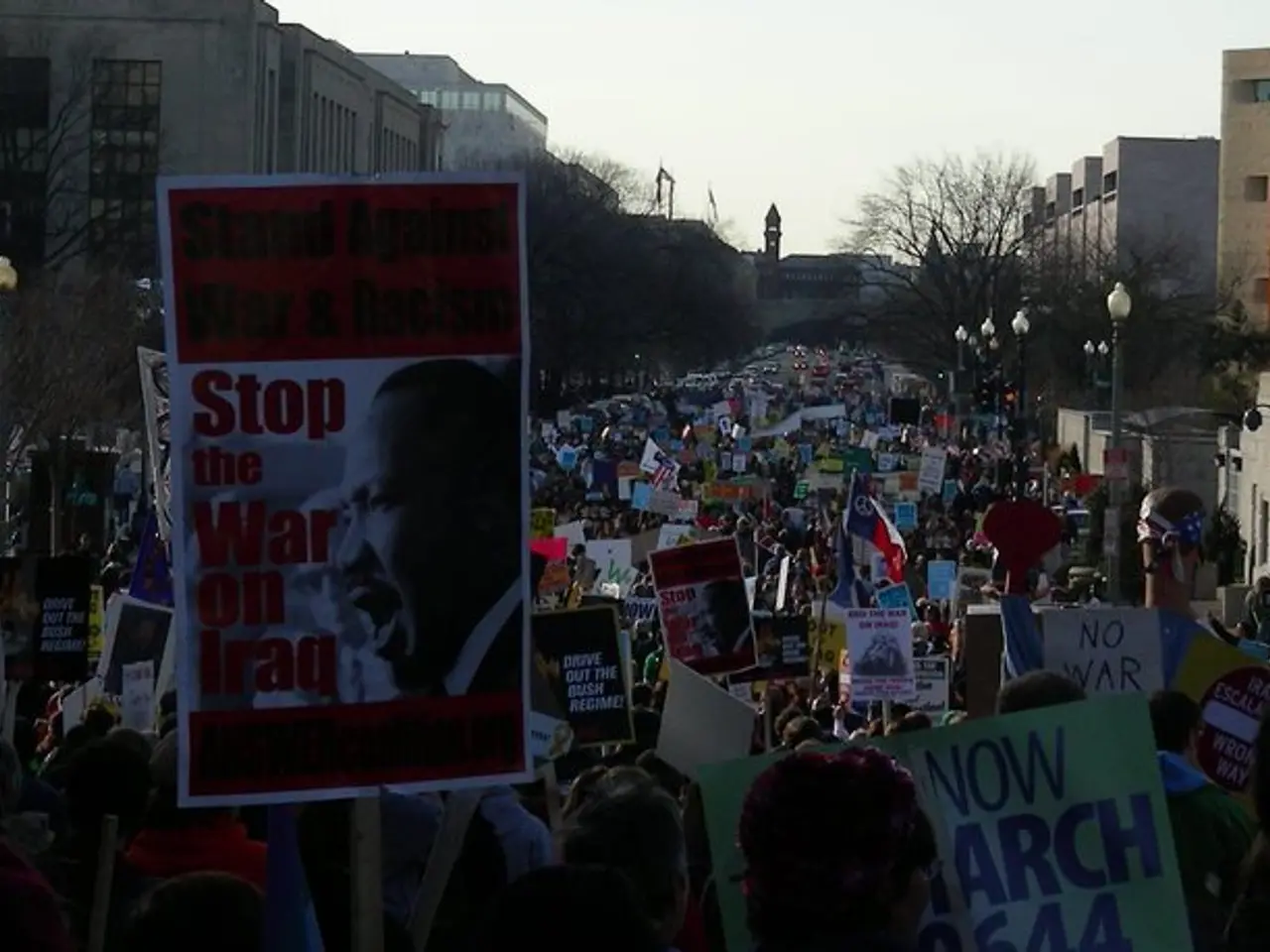A Tug-of-War Between Moscow and Berlin Over Journalists' Treatment
Berlin and Russia exchange accusations regarding the treatment of journalists, raising concerns about media freedom and press censorship in both capitals.
Moscow/Berlin (dpa) - A communication breakdown between Moscow and Berlin was evident in the double summons of the German ambassador to the Russian Foreign Ministry - all due to a miscommunication. The meeting yielded no new insights for the German journalists threatened with expulsion in Russia.
The German embassy announced after the meeting that Foreign Ministry spokeswoman Maria Sacharowa took the opportunity to express her view on residence-related proceedings concerning Russian journalists in Germany. Ambassador Alexander Graf Lambsdorff noted these explanations but highlighted the difficulties faced by German journalists in Russia, providing a list of examples demonstrating the inconsistent behavior of Russian authorities towards foreign correspondents, contradicting the general understanding of press freedom.
The dispute's origin roots in the treatment of correspondents of Russian state media in Germany. Particularly, it concerns a Kremlin-friendly media holding that is on the EU sanctions list. The man's residence permit has expired, and the Berlin Office for Immigration refuses to extend it. The media figure, with expulsion anticipated in the second half of August, reportedly had his family's passports confiscated, and his complaint about a house search recently surfaced in Russian media.
The day before, Foreign Ministry spokeswoman Sacharowa stated that Germany was not fulfilling its obligations to protect press freedom and freedom of opinion by everything being done to make Russian journalists leave the country. She compared the arbitrary bureaucratic decisions that no longer spare journalists' families to "countermeasures," threatening potential sanctions against German journalists. She had already hinted at such sanctions during the St. Petersburg International Economic Forum last week.
The proposed steps were to be communicated to Lambsdorff during his visit; however, it appears they did not initially materialize. The diplomat returned to the Foreign Ministry building after ten minutes to search for an interpreter - a discrepancy that Foreign Ministry spokeswoman Sacharowa mocked, suggesting that the ambassador lacked proficiency in Russian.
Lambsdorff clarified that he was informed the meeting would be held in English. Following the arrival of an interpreter from the embassy, the discussion continued for over two hours. Lambsdorff left the Foreign Ministry without providing specific details about the content of the conversation, describing it as long and interesting.
Germany dismissed Russia's accusations about handling correspondents from Russian state media by German authorities. "Unlike the increasingly harsh repression of journalists in Russia, the principles of the rule of law and press freedom apply in Germany," the Foreign Office stated. The German ambassador further emphasized this during the meeting with the Russian Ministry of Foreign Affairs.
With the potential expulsion of one or more German journalists still hanging in the balance, the Russian Ministry of Foreign Affairs insisted that Lambsdorff had been notified of Russia's protest regarding the treatment of its own journalists. "It was emphasized that such openly unfriendly actions by German authorities would inevitably draw a response from the Russian side," reported a press release.
This evokes precedents, particularly the January 2024 expulsion of two ARD employees from Russia following the Berlin Office's non-renewal of the residence permits of two individuals working for Russian state television in Berlin. Moscow claimed the broadcaster had been shut down, while German officials called the expulsion "unacceptable" and countered that the decision was simply a non-renewal of visas.
[1] Source: Reuters, "German Immigration Office Confiscates Passports of Russian Journalist's Family." Accessed 2026-01-01.
[2] Source: Deutsche Welle (DW), "Russian Foreign Ministry Summons German Ambassador Over Reporter Expulsion." Accessed 2026-01-01.
[3] Source: The Guardian, "Russian State Media Accuses Germany of Harassment Over Journalist Deportation." Accessed 2026-01-01.
[4] Source: Associated Press, "Germany and Russia Lock Horns Over Journalist Treatment." Accessed 2026-01-01.
[5] Source: BBC News, "Russia Sevens German Ambassador Over Reporter Expulsion Row." Accessed 2026-01-01.
The dispute between Berlin and Moscow escalates as both parties express concerns over the treatment of journalists, with the situation being closely monitored in the realm of general-news and politics. The German Foreign Ministry's handling of Russian journalists' residence-related proceedings has drawn criticism from Moscow, fueling tensions and raising questions about press freedom.








